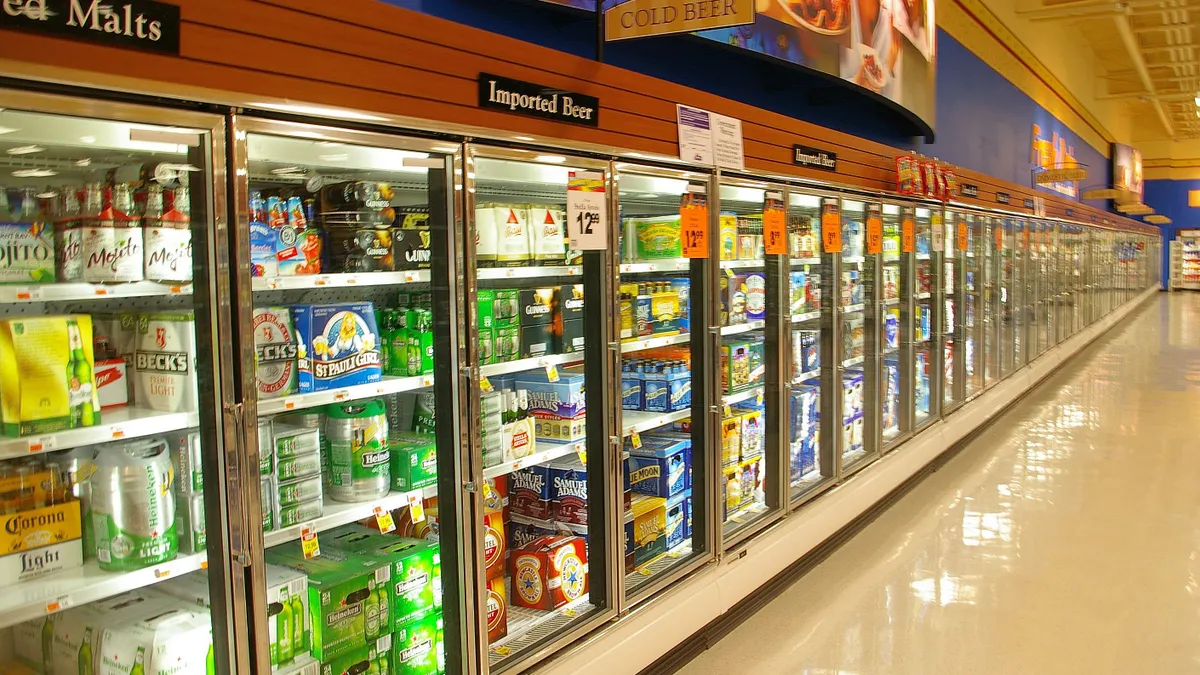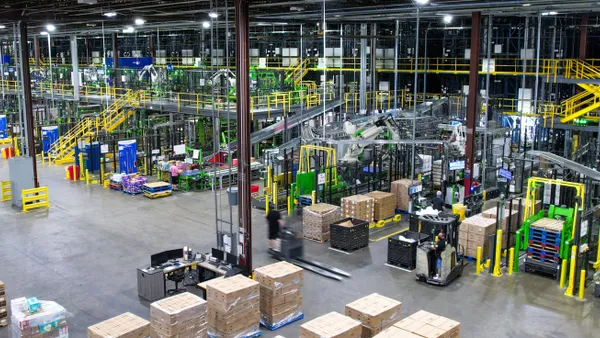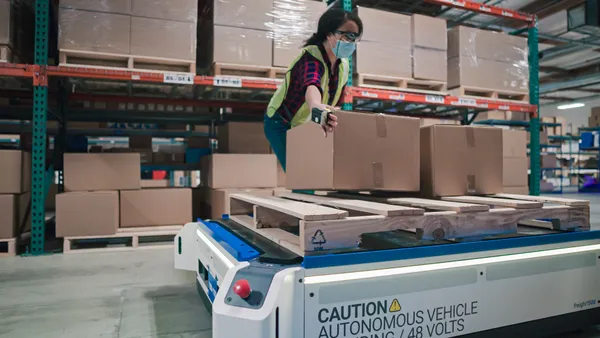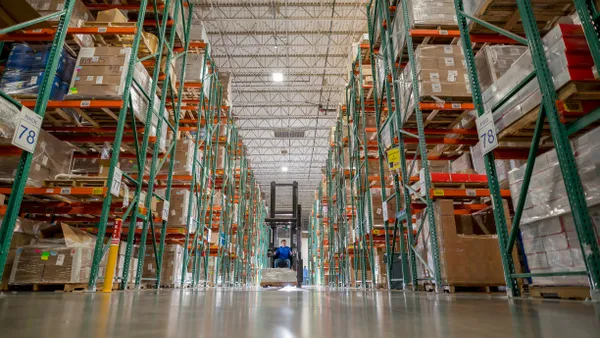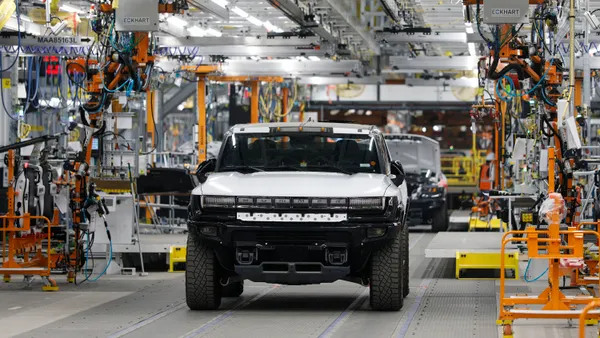Dive Brief:
- Many of the nation's largest retailers have made commitments to reduce their greenhouse gas emissions, a decision that could lead to savings on energy expenses. A recent report by the Carbon Disclosure Project estimated suppliers saved $19.3 billion annually as a result of emission reduction efforts.
- Walmart, which is responsible for more scope one and scope two emissions than any other top 10 retailer, also has one of the highest 2018 Climate Change scores from CDP, with an A-. The retail giant has outlined plans to reduce emissions in its operations by 18% and source half its energy needs from renewable sources by 2025, according to its 2018 sustainability report.
- "So many of the initiatives we're talking about in terms of your direct operations are value saving," said Alexis Bateman, the director of sustainable supply chains at MIT's Center for Transportation and Logistics. "If you have to buy less energy, you're saving money. If you're optimizing your routes, and using less gas and using less man-hours, you're saving money."
Dive Insight:
The ability to decrease emissions requires knowing where the emissions originate. Lowe's, in its most recent sustainability report, highlighted the use of a building management system to track energy use. This will allow the company to see the impact when it puts in LED lighting and updates HVAC systems.
Emissions from large companies tend to be tracked with either scope one emissions (the first chart in this article), scope two emissions (the chart below) and scope three (not shown). Scope one emissions are the result of the company's own operations, like operating a truck fleet. Scope two covers multiple forms of energy purchasing, including getting electricity from the grid. Scope three is indirect emissions resulting from the company's suppliers.
But just looking at sales and number of U.S. locations don't provide a lot of insight into these emissions numbers. Walmart has the highest levels for emissions and sales, but retailers like Costco and Home Depot have larger sales number and smaller emissions than either Albertsons or Royal Ahold Delhaize.
Many companies are working actively to lower emissions in all scopes. Take Kroger, for example, which plans to increase its Ton Miles Per Gallon in its transportation fleet by 20% by 2020 using its 2010 numbers as its baseline — this would lower its scope one emissions. The retailer is also looking to reduce overall electricity use, which would lower its scope two emissions.
Costco has the lowest score, a D, on its 2018 CDP Climate Change report when compared to the 11 retailers whose CDP scores were reviewed by Supply Chain Dive. The review was done on companies with the highest U.S. sales in 2017, according to the National Retail Foundation.
| Company | U.S. Scope One Emissions (metric tons CO2e) | U.S. Scope Two Emissions, location-based (metric tons CO2e) | Climate Change 2018 Score CDP | U.S. Locations | Sales (Billions) |
| Walmart | 4,225,799 | 9,698,984 | A- | 5,328 | $374.80 |
| Kroger | 2,791,304 | 4,035,724 | C | 3,902 | $115.89 |
| Costco | 756,809.8 | 968,103 | D | 510 | $93.08 |
| Home Depot | 395,244 | 1,576,686 | A | 1,968 | $91.91 |
| Walgreens | 215,000 | 1,672,000 | C | 7,980 | $82.75 |
| CVS | 206,086 | 1,130,728 | B | 9,778 | $79.54 |
| Target | 706,176 | 2,186,651 | C | 1,822 | $71.88 |
| Lowe's | 342,375 | 194,6167 | C | 1,839 | $63.13 |
| Albertsons | 2,437,915.38 | 2,536,421.7 | C | 2,318 | $59.72 |
| Royal Ahold Delhaize | 1,424,137 | 1,517,731 | C | 1,962 | $43.20 |
| Apple Stores | 40,137 | NA | A | 272 | $38.60 |
One of the only specific initiatives of Costco's website related to carbon emissions doesn't mention reduction. It instead plans "to work toward maintaining our carbon footprint growth to less than our company sales growth."
Just the act of being transparent about something like carbon emissions is a step in the right direction when it comes to sustainability, Bateman said.
"By effect of having disclosure and transparency about their operations it sheds some light on where their biggest impacts are," she said, referring to companies generally. "So even though those numbers are big and they're a little scary the fact that there's acknowledgment that there are major impacts that can be addressed" is an important first step.
This story was first published in our weekly newsletter, Supply Chain Dive: Operations. Sign up here.



